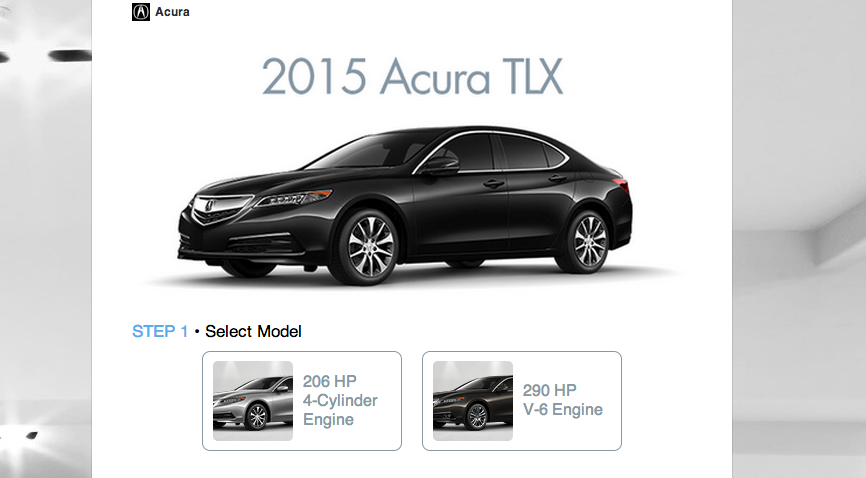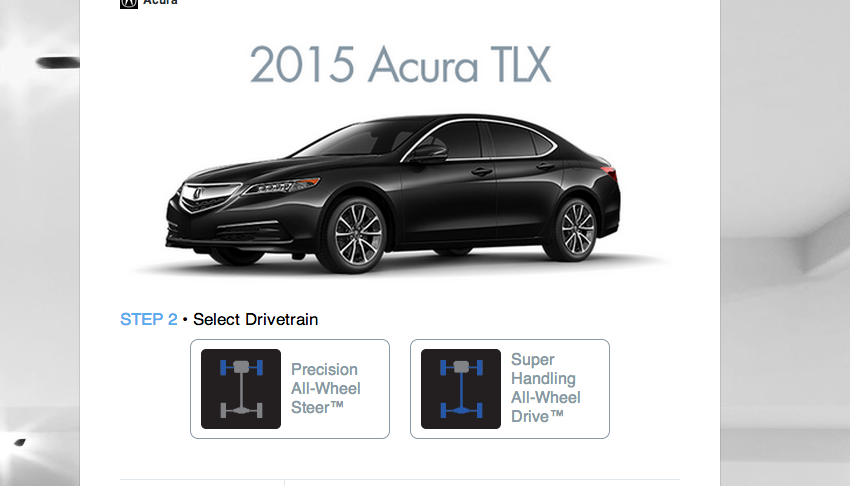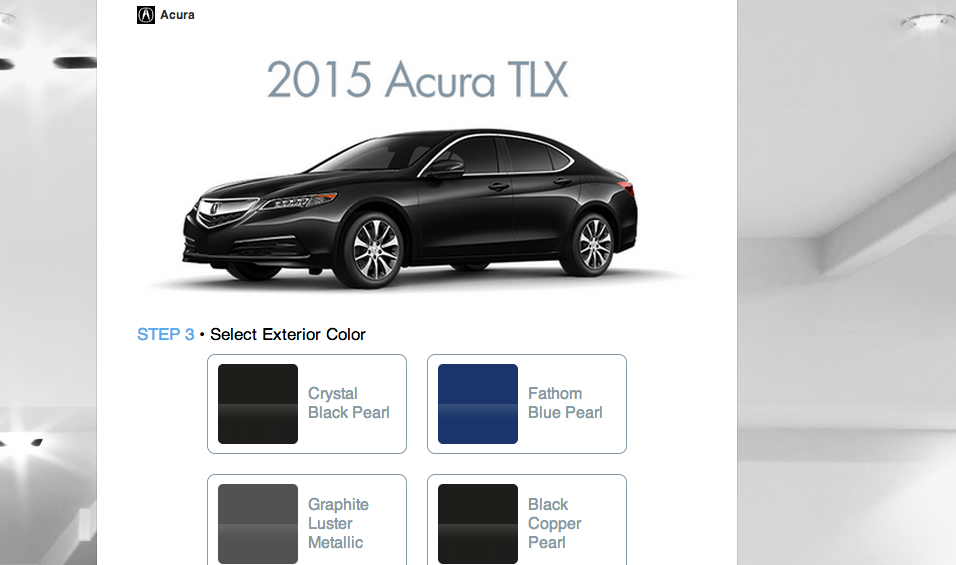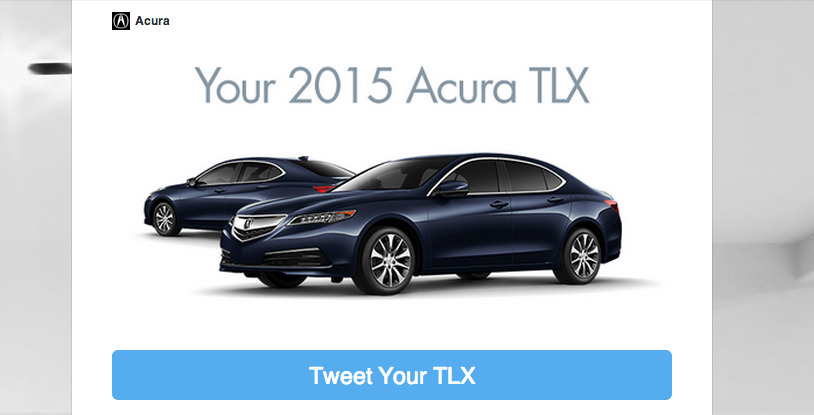Secure your place at the Digiday Media Buying Summit in Nashville, March 2-4

This may actually be a first: Acura is trumpeting the launch of the 2015 TLX performance luxury sedan by letting you create a customized car, within Twitter.
Here’s something you haven’t seen before. Configure your dream 2015 Acura TLX below without ever leaving Twitter. https://t.co/mvfblJ0ZiA
— Acura (@Acura) August 20, 2014
First, you can choose an engine: the 206 HP four-cylinder, or the 290 HP-V6.

Then, select a Drivetrain — what kind of steer you want.

Lastly, you can pick an exterior color.

Voila: your 2015 Acura TLX, which you can then tweet.

The tweet uses the revamped version of the new Twitter cards, which now let you add photos, videos or other media in the card itself.
The campaign, developed by Mullen, is part of the biggest marketing campaign in the brand’s history, and uses both promoted tweets and promoted accounts. A video road block on Facebook will also run TLX videos, which the brand says will reach nearly 100 percent of Facebook users, starting early September. There are also TV spots that will started running mid-August.
In a statement, Michael Accavitti, svp, general manager for Acura said, “The TLX heralds a new era for the Acura sedan lineup and the scale of the marketing effort behind the launch signifies the importance of the model both to the brand and its position within the luxury sedan market.”
More in Marketing

WTF are tokens?
When someone sends a prompt or receives a response, the system breaks language into small segments. These fragments are tokens.

AI is changing how retailers select tech partners
The quick rise of artificial intelligence-powered tools has reshaped retailers’ process of selecting technology partners for anything from marketing to supply chain to merchandising.

YouTube’s upmarket TV push still runs on mid-funnel DNA
YouTube is balancing wanting to be premium TV, the short-form powerhouse and a creator economy engine all at once.





